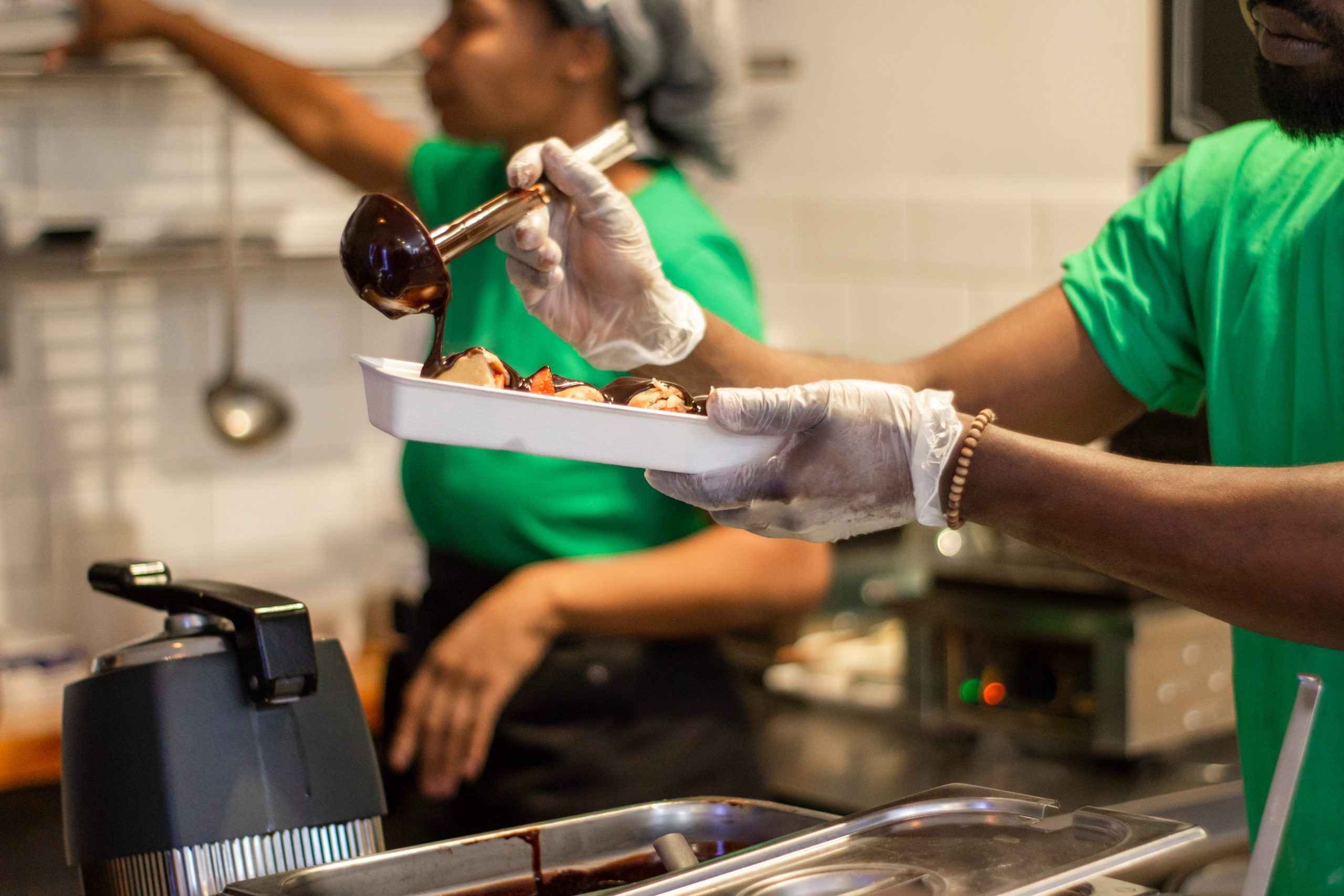In this article, we will be going over the reasons why food waste management is a priority, how mishandling it can be harmful, and how you can properly manage food waste.
Importance of Food Waste Management
Not taking food waste management seriously poses an existential threat to any company in the food business. Here are four reasons why:
Safety
Above everything else, poor food waste management can lead to people getting sick, or worse, people dying. Customers can get food poisoning or have a severe allergic reaction that could put them in the hospital. Employees that directly handle the food can also be exposed to contaminants that have adverse effects on their health.
Business Cost
Poor food waste management is costly. The physical harm inflicted on customers also results in financial losses when you have to deal with legal problems and reputational fallout. Workers either have to take more sick days off or get replaced entirely. Even day-to-day operations get disrupted with improper food waste disposal, as pests are more likely to appear, sinks get clogged, and waste bins spill over.
Legal Compliance
There are food safety regulations that businesses in this industry need to follow. The Food Safety Act 1990 is the overarching legislation that basically states food should not be sold or served if it has anything that can cause harm to those consuming it, and food waste management factors into this ultimate goal. Food safety plans are also expected to follow the HACCP principles.
Environmental Harm
Poor food waste management contributes to the destruction of the environment. Carelessly throwing out excess fat and oil clogs up pipes, which can burst and leak out. Contaminated waste haphazardly dumped out may be toxic to plants and animals. Less efficiency means more food waste that goes to landfills and adds to overall pollution.
Food Safety Hazards Resulting from Poor Waste Control
When you don’t take the proper actions to manage your food waste, you introduce food safety hazards into your business establishment. Understand what such hazards are and the risks they bring to improve your food waste control processes.
Chemical Hazards
Food can have naturally occurring substances or substances added during processing that are harmful to humans. In such cases, these are classified as chemical hazards.
Naturally harmful substances include toxins that are produced in plants and decomposed underwater plant life that accumulate in fish. Mushrooms and other fungi produce mycotoxins that can make people ill. There are certain types of seafood that are poisonous and have to be prepared delicately.
Toxic chemicals can be added to food while they are processed, such as additives, preservatives, and pesticides. Such contaminants can be added intentionally or unintentionally.
Biological Hazards
Microorganisms can contaminate food and cause people to get sick. Such microorganisms that are considered biological hazards are viruses, bacteria, and parasites.
Raw food products like uncooked meat and unpasteurised dairy are home to all sorts of bacteria and parasites. The environment can contribute to microbial growth, such as warm and moist spaces. Acidity is another factor, wherein the lower the acidity, the higher the rate of bacterial infection. Cross-contamination is also a concern when it comes to biological hazards, as contaminated food coming into contact with clean food spreads the infection.
Physical Hazards
Objects found in food products that can cause harm are physical food safety hazards. They can be natural, such as stems in fruit or dirt on vegetables. They can also be unnatural, such as human hair, wood chips, microplastics, tiny shards of glass, and even insects. Unnatural physical hazards present a greater danger to consumers than natural hazards. Thorough inspection is key to removing such hazards.
How to Properly Manage Food Waste
You can avoid the presence of any type of food safety hazards through proper food waste control methods. The following six tips should get you started.
- Separate different kinds of waste
Instead of throwing all your food waste into one container, you should separate them into different containers. Consider having separate waste bins each for the type of food it is (e.g., meat, plants, dairy) and the type of waste it is (e.g., excess scraps from preparation, uneaten food, expired products). Make sure they are also physically distant from one another to avoid cross-contamination.
- Segregate scraps during preparation
Waste is already produced while preparing food, whether it’s skin, stems, or bones. Proper waste control starts here by having bins placed in convenient locations. Have such bins specifically for scrap waste disposal near the preparation stations. Choose lidded bins so as not to attract pests.
- Keep your kitchen clean
Cleanliness is a must in the kitchen, and it should extend to food waste control. Having a clean-as-you-go policy disciplines everyone in the kitchen to immediately attend to spills and rubbish strewn about the space. Workers have to observe proper hygiene after disposing of waste.
- Track expiration dates
Be mindful of how long ingredients can last in storage. Respect the expiration dates that come with every food product. Don’t risk using food products that have passed their expiration dates just because you don’t want them to go to waste.
- Dispose of waste before it accumulates
Don’t let your waste containers start overflowing with rubbish before you empty them out. Keep in mind the schedule of your waste collection provider. Once you’ve disposed of the contents in your waste bins, disinfect them before using them again.
- Implement an HACCP management system
While it is not a legal requirement, it is highly recommended to have a food management system that follows Hazard Analysis and Critical Control Point (HACCP) principles. Following such a system can help reduce food safety hazards in general, covering food waste control as well.
Practice Proper Food Waste Control
Don’t let food waste turn into food safety hazards. Get on top of your food waste control processes immediately to prevent cross-contamination, pest infestations, and other workplace sanitation problems brought about by negligent food waste disposal. You can also get professional assistance on food safety advice and HACCP courses from the Health & Safety Dept. Contact us today to get started.



